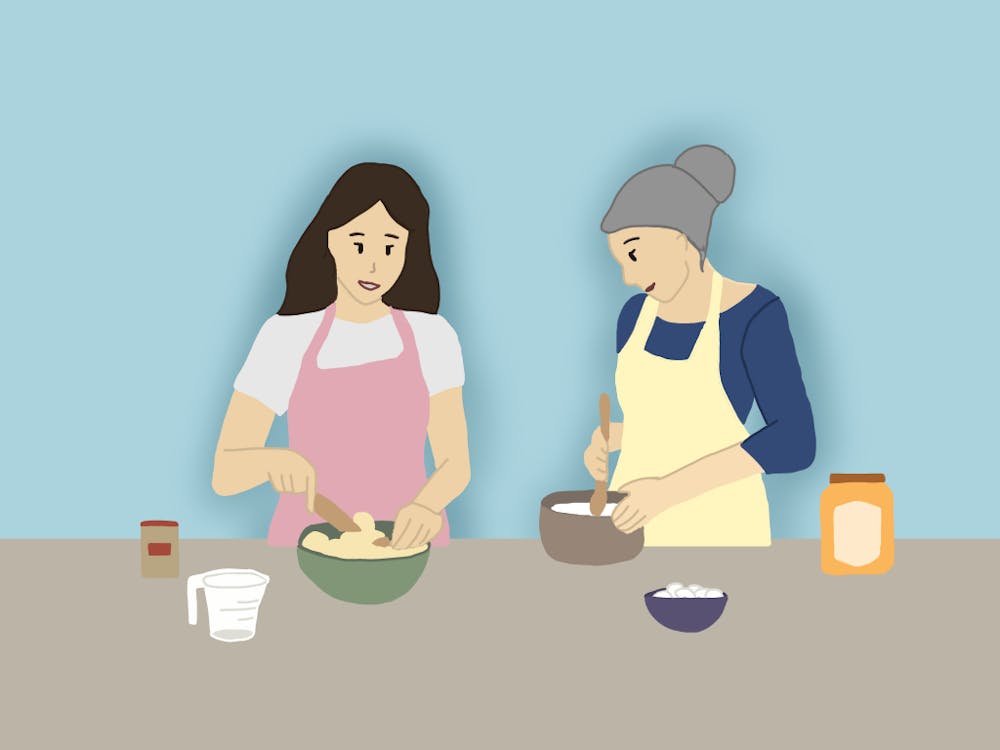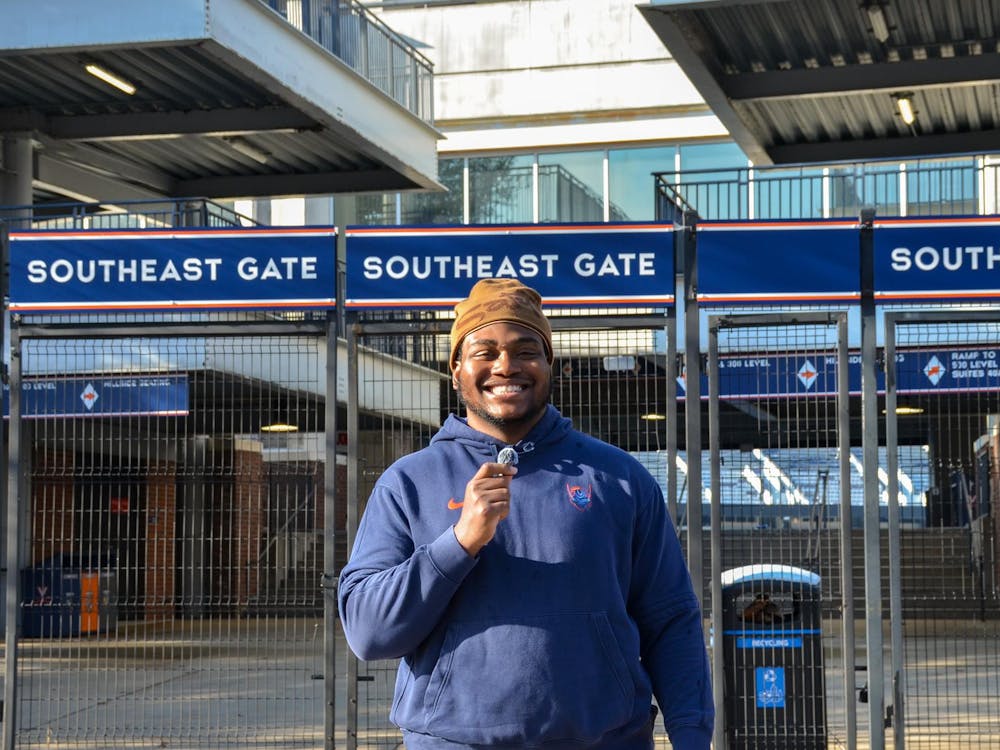Sometimes we say meaningless things.
Take, for example, the “sorry circle.” Someone accidentally gets in your way and says, “Sorry!” to make up for it — but it really wasn’t a big deal to begin with. You feel compelled to let him or her know you’re okay with whatever just happened by also saying sorry. And then, if you’re particularly unlucky, he or she feels badly about making you uncomfortable, and proceeds to apologize for inducing your redundant apology. The “sorry circle” can last for hours if you let it.
Okay, fine, maybe that’s just me.
To be more general, let’s say you pass someone on the way to class and he or she asks how you are. You say you’re good, ask how they’re doing and — surprise! — he or she is also doing well. You have thus completed a pleasantry circle, in which you have successfully accomplished little more than maintaining a base level of acquaintanceship and determining whether you both know when to use an adjective and when to use an adverb.
Ultimately, we use certain words and phrases so frequently and offhandedly we don’t think before we say them. They’re instinctive. But there’s one phrase I believe we should think about more often.
As an Alternative Spring Break enthusiast, I have either participated in or led service trips for the past three years. Just this weekend, I returned from a week of shoreline Habitat for Humanity building and homeless shelter service in Pensacola, Fla. I was struck by many realizations throughout the week — like how unfortunate an accidental one-hour eastward detour can be when you are supposed to be on a 15-hour southwestern pursuit, or how heavy a bag of oyster shells is or how much stronger your right arm is than your left after spending your day using a hammer.
I was also struck by the number of occasions I had to both say and hear the words, “Thank you.”
Often, our group received thanks. Our partner organizations would say thank you for the long drive we made to work in Pensacola, for giving up the opportunity to spend our breaks relaxing in favor of volunteering and for working our butts off with physical labor that left our glutes in shambles.
It was nice to be recognized in this way. But for every time we were thanked, we had reason to return the phrase.
We thanked the environmental scientists at the Florida Department of Environmental Protection for their ability to passionately facilitate a discussion about oyster reefs and sea grass species in such comprehensible terms that we became legitimately excited about the shape of the shore.
We thanked the crew leaders at our Habitat for Humanity build for sharing their personal experiences as Habitat homeowners, and for teaching us how to use a hammer so as to inflict minimal damage on our thumbs.
We thanked the staff at the homeless shelter for sharing their stories of drug and alcohol rehabilitation, for showing us their facilities and explaining their programs and for remaining inspired and motivated to do the work they did.
We even thanked each other for the openness displayed both in sharing and listening to each other’s reflections on service, personal expectations and life hurdles.
Our trip was engaged in thank-you circles, where the phrase circled back and forth between any and all involved parties. Saying those words with such frequency was refreshing. Yet the best part about these thank yous was they were neither repetitive nor reflexive. We said and gave them because we meant them.
I’m not advocating saying thank you with thoughtless incidence, nor am I advocating a restriction on the prevalence of these words. Rather, I am passing along the belief we should try to thank people for something — for sharing, for listening, for explaining. Such deliberate thanks requires reflecting on why we express gratitude at all, which gives us an even better understanding of how fortunate we are for the circumstances we are in and for those with whom we come in contact.
I left Pensacola realizing the most meaningful thanks have reciprocity, where both parties have a sincere reason and a genuine inclination to thank one another. And although you can’t enter a situation with the expectation of recognition, you can confer that recognition on others. The more we hear those words and the more we internalize them, the more likely we are to give them back to others and start thank you circles of our own.
Sometimes, we say meaningless things. “Thank you” shouldn’t be one of them.
Caroline’s column runs biweekly Thursdays. She can be reached at c.trezza@cavalierdaily.com.






